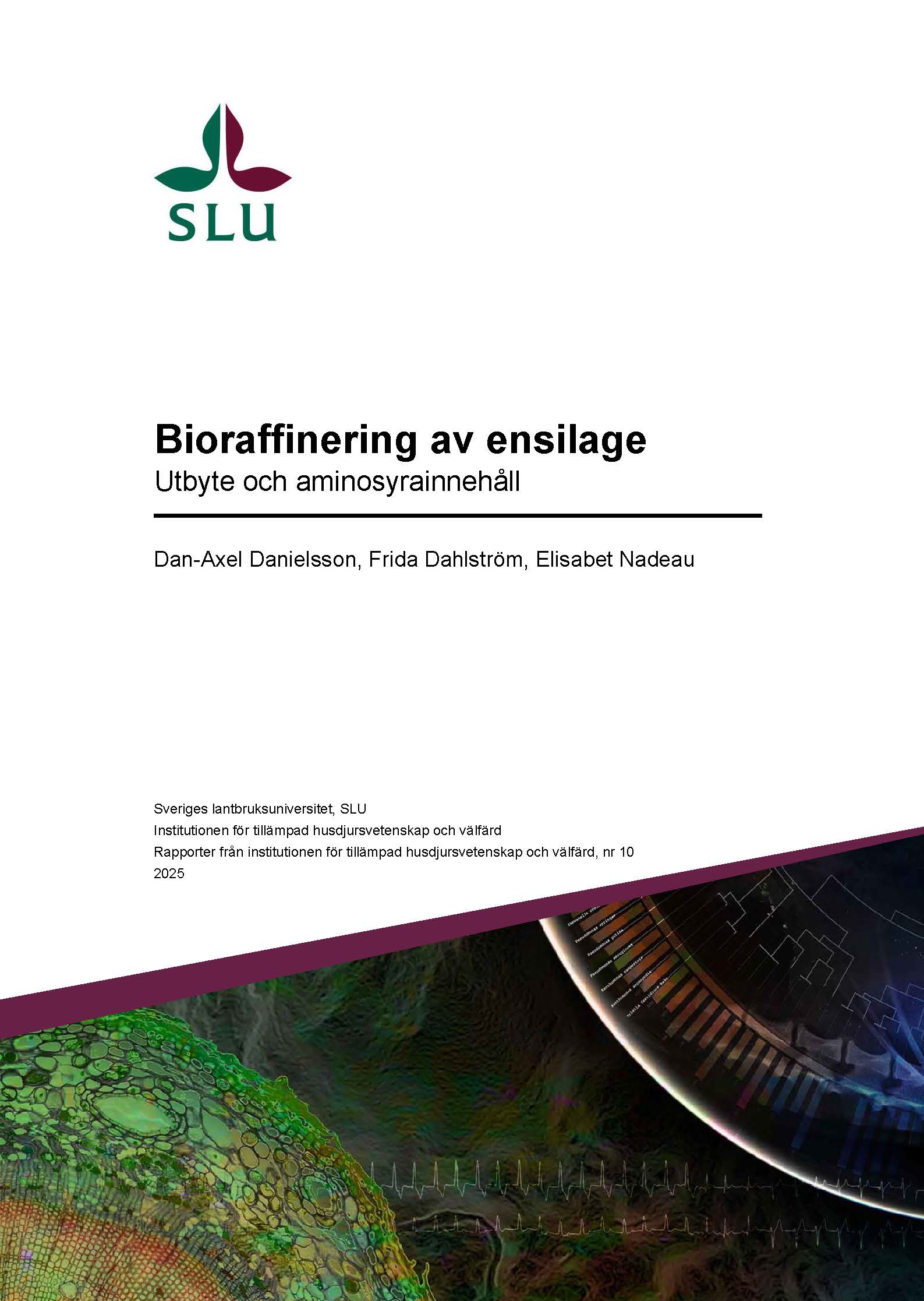A new study from SLU shows that biorefining silage can provide valuable protein – while reducing the need for imported soy. By pressing silage in a biorefinery, two products are obtained: press cake (feed for cows or biogas substrate) and press juice that can be used for pigs and poultry, or further processed into protein powder.
The results show that
- 10–35% of the protein in the silage ends up in the press juice and 17–50% in the ash.
- The press juice is rich in lysine, which is important for pigs, but low in methionine and cysteine, which are crucial for poultry.
- There is considerable variation. It is therefore important to analyse the content of amino acids and minerals in order to achieve a balanced feed ration.
- The dry matter content of the silage has a significant impact on the yield – drier silage produces less juice.
- The use of additives during ensiling improves protein quality.
The research is part of our Green Valleys 2.0 project and points to opportunities to increase Swedish protein production year-round, strengthen the profitability of biorefineries and contribute to more sustainable agriculture.
The report was compiled by Dan-Axel Danielsson, Frida Dahlström, Elisabet Nadeau, SLU – Department of Animal Science and Welfare within the Green Valleys project. The study is funded by Interreg Öresund-Kattegatt-Skagerrak together with SLU and the Västra Götaland regionen.
Click below to read the full report here on Biorefining of silage – Yield and amino acid content.

